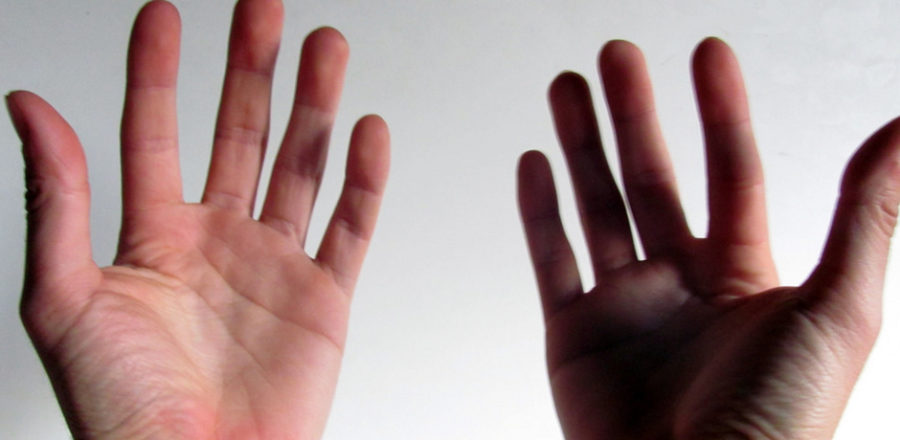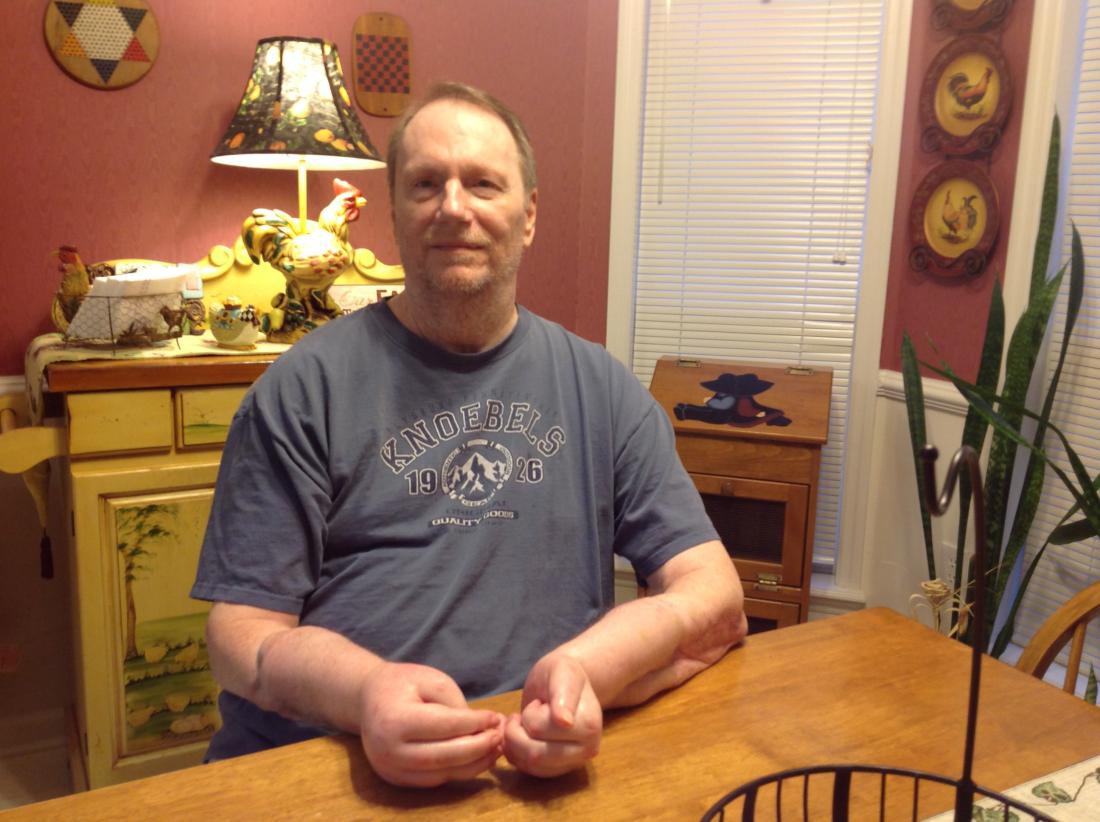The first patient in the USA who was transplanted with both hands wants to get rid of them.
He says hands have not functioned for seven years now.

In medicine, as in many other areas, someone must always be first. Seven years ago, an American named Jeff Kepner became the first person in the United States to go through a donor-transplant procedure in both hands. Then the newspapers were full of headlines like "A moving story about a life that has changed." Unfortunately, this is true - the life of Jeff Kepner, who is now 64 years old, has changed: it has become harder. He claims that if he could get rid of his hands, he would do it.
')
“Since the transplant, I can’t do anything with my hands. Absolutely nothing. I sit in my chair all day and watch TV, ”the ex-patient says. Kepner is one of many Americans who have agreed to participate in an experimental organ transplant operation. In many cases, operations are successful, but in this case, the doctors managed only to transplant and engrave the hands of others, but not to restore their functionality.
It was the first operation of this type, so the doctors are most likely not guilty here. But Kepner is no better off.
In the United States, as well as throughout the world, physicians have achieved significant success in conducting organ transplants. Complicated surgeries such as face, uterus and penis transplantation have been successfully performed. But all these medical advances do not guarantee 100% of a successful operation.
In 1999, Kepner lost both hands due to blood poisoning, which caused a streptococcal infection in his throat. After amputation, he received fairly good prostheses, which allowed him to drive and work. Neither one nor the other is not available to him now.
Ten years after the amputation, Kepner became a patient at the University of Pittsburgh Medical Center (UPMC). The center decided to have a hand transplant from a dead donor to a live patient. The operation lasted 9 hours, the tissues took root, the donor’s limbs they were not rejected. The American said that he was fully aware of the risks, but believed that in the worst case, if his hands were rejected, he would simply get his prostheses back. The reality turned out to be different.

Jeff Kepner in his house
Dr. Vijay Gorantla, who works at the Center, has been monitoring the patient since the surgery. He says that the patient asked the doctors to remove his hands that were not functioning properly. But, unfortunately, this is impossible, although experts and discussed options such as the complete or partial removal of new limbs. In the case of complete removal, it is unknown whether Kepner will be able to use prostheses. In addition, you will need a very long therapy.
If, on the other hand, amputated new limbs partially, the patient will still have to take drugs that suppress the body's immune response. If these medicines are not taken, the body can reject other people's hands. The doctor believes that surgery is necessary with subsequent therapy - this will probably allow to “revive” the limbs.
But the former patient was tired of medicine and doctors. He says that he does not want any procedures, even better hands, although non-functional, will remain with him. “I don’t want to repeat all these operations again,” Kepner said.
According to Andrew Lee, who led Kepner's hands transplant operation in 2009, the need to remove already established transplanted organs occurs very rarely. Lee himself is now engaged in penis transplantation for American soldiers who have lost this body. According to him, usually about 6 out of 100 transplanted organs are removed (all organs are meant here, and not just the hands, the uterus or the penis). This statistic is relevant for both the United States and Europe.
The surgeon also claims that there are now 4 patients in the US who have had both hands transplanted. And only Kepner's hands do not work. Three other patients have both hands in varying degrees, and lead a completely autonomous lifestyle. They can drive, work, learn.
“Complicated surgeries, such as transplants, do not always lead to equal results in different patients,” the surgeon says. "But we have achieved the restoration of the functionality of the hands and other organs in our other patients, whose lives have changed for the better after transplantation."
A former patient, Lee, claims that surgeons who performed hand transplants did not attempt to contact him all these years.
He says that his life was almost destroyed by an unsuccessful operation. With prostheses, according to Kepner, he "was 75% functional, but now this figure is 0%." His wife quit in May from work to be able to care for him day and night.
Kepner does not blame the doctors. He says that the likelihood that he will receive new, functioning in varying degrees, hands, was quite high. But, unfortunately, nothing happened. Now he does not intend to change anything, insisting that he will no longer participate in new experiments.
The doctor, who says that in other patients the arms regain their physical activity, is right. Last year, two hands were transplanted in the USA at once to 8-year-old Zion Harvey. He lost his own hands because of an infectious disease. But in his case, the functionality of the limbs began to recover within 2 weeks after the operation. The boy was able to move his fingers and control his hands.
In fact, the Kepner case can be called the only unfortunate case with a double hand transplant. Probably, if he nevertheless agreed to re-operation, the functionality of the hands could be restored.
Source: https://habr.com/ru/post/396435/
All Articles